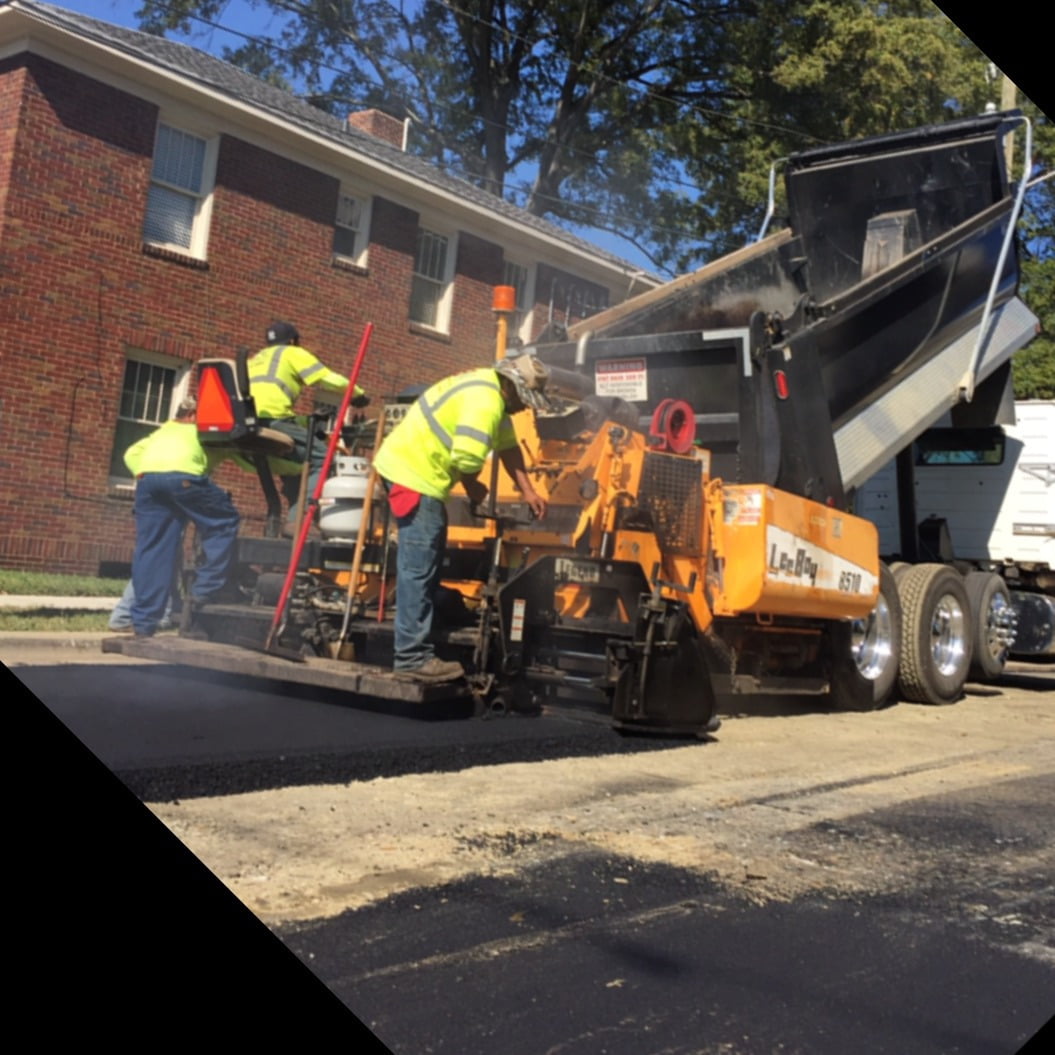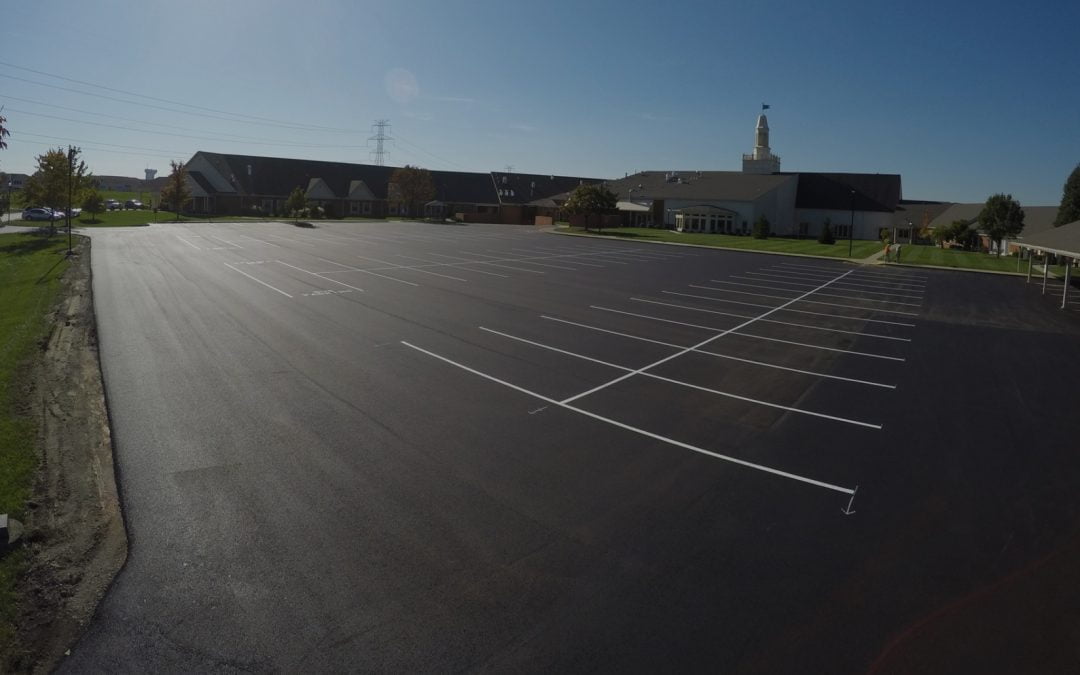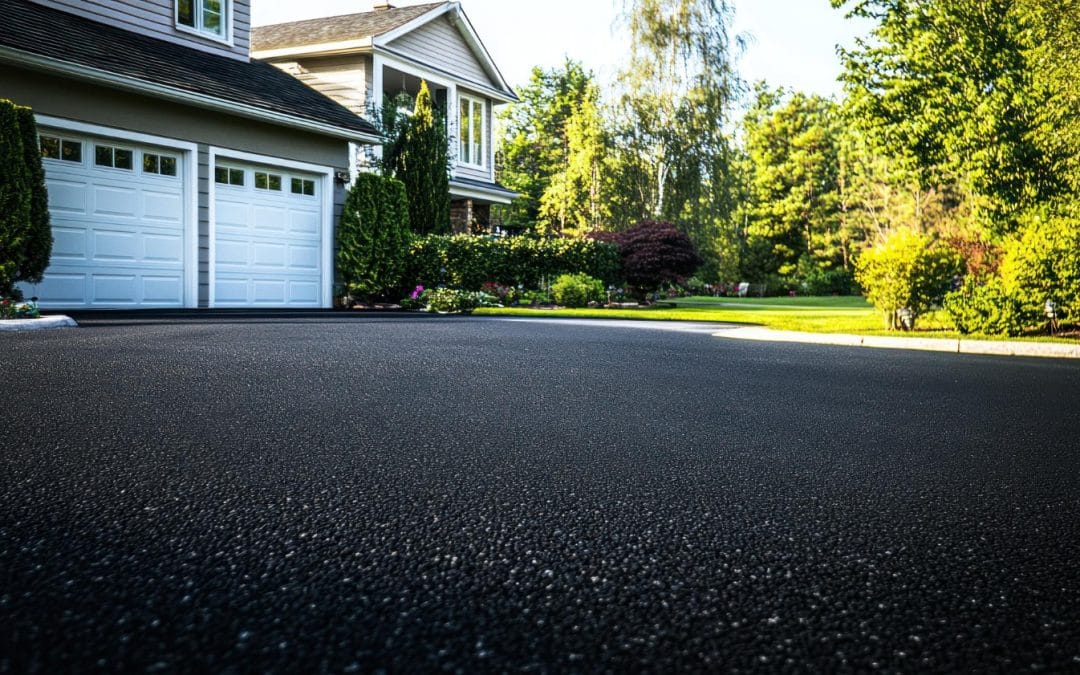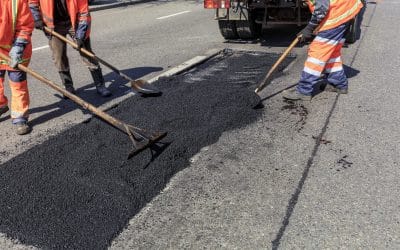If you’ve recently considered paving or resurfacing your driveway, you may have experienced a bit of sticker shock. So, why is driveway paving so expensive? The cost often goes far beyond the visible work of pouring asphalt or concrete; it includes numerous behind-the-scenes factors that drive up the price.
In this blog, we’ll break down the reasons driveway paving can be costly, explore how material, labor, and other hidden costs contribute to the final price, and offer tips to help you understand what you’re paying for and why.
The Basics: What Drives the Cost of Driveway Paving?
Before diving into specific reasons why driveway paving is expensive, it’s essential to understand that several key factors impact the overall cost. These include the type of material used, labor expenses, the size of the project, and additional services like site preparation or drainage work.
1. Material Costs
One of the primary reasons driveway paving is expensive lies in the material itself. The two most common materials used in paving are asphalt and concrete, both of which vary significantly in cost. Asphalt tends to be more affordable, ranging from $2 to $5 per square foot, while concrete costs between $4 and $10 per square foot. More luxurious materials, like pavers or natural stone, can increase the price dramatically.
However, these costs go beyond the base price of the raw material. Higher-quality asphalt or concrete mixes with enhanced durability or aesthetic appeal will come at a premium price, as well.
Expert Insight: “When you choose premium materials, you’re not just paying for durability, but for longevity,” explains Michael Brown, an asphalt contractor with 20 years of experience. “It’s an investment in minimizing future maintenance costs.”
2. Labor Costs
Labor makes up a significant portion of the total expense, especially when paving requires skilled professionals to ensure long-lasting results. Labor costs will vary depending on your location, the complexity of the job, and the contractor’s experience. Areas with higher costs of living, like cities or affluent suburbs, will generally have higher labor rates.
Additionally, driveways require a team of workers, including equipment operators and laborers, to handle tasks like grading the land, pouring the materials, and compacting the surface. Depending on the size of your driveway, this could involve a full day or even multiple days of work.
3. Site Preparation
Before any asphalt or concrete is laid down, extensive site preparation is necessary to ensure the driveway will last. This includes:
- Excavation: Removing old pavement or clearing the site of vegetation, rocks, and other debris.
- Grading: Leveling the ground to ensure proper drainage, which prevents water pooling and future cracks.
- Base Layer Installation: A stable foundation of compacted gravel is essential for the driveway’s durability.
If your property requires extensive excavation, grading, or drainage solutions, this can significantly increase the overall cost. Site preparation is crucial because a poorly prepared driveway will quickly crack or wear, leading to costly repairs down the line.
Why Is Asphalt Driveway Paving So Expensive?
If you’ve been asking, “Why is asphalt driveway paving so expensive?”, the answer often lies in more than just the material costs.
1. Oil Prices Impact Asphalt
Asphalt is made from a petroleum byproduct called bitumen, which means the price of asphalt is directly tied to fluctuations in oil prices. When oil prices rise, the cost of asphalt paving also increases. This is one reason why the cost of asphalt can vary widely depending on global economic conditions.
2. Temperature Sensitivity
Asphalt paving is a temperature-sensitive process. The material needs to be heated and applied at specific temperatures to ensure proper bonding and compaction. In colder weather, contractors may need to work faster, use specialized equipment, or even apply additional materials to ensure the asphalt sets correctly. These adjustments raise labor and material costs.
3. Maintenance and Durability
While asphalt is cheaper than concrete upfront, it requires regular maintenance, such as sealcoating and crack repairs. Sealcoating protects the surface from moisture, UV rays, and chemicals, but needs to be done every 2-3 years, adding to the long-term cost of the driveway.
Why Is Concrete Driveway Paving So Expensive?
While asphalt is generally more affordable, you may be wondering, “Why is concrete driveway paving so expensive?” The answer lies in the material’s properties and the installation process.
1. Longer Lifespan Equals Higher Cost
Concrete is more durable and has a longer lifespan than asphalt, often lasting 30-40 years with minimal maintenance. However, the initial installation costs reflect this longevity. Concrete is more expensive upfront, but it offers a greater return on investment over time.
2. Complex Installation Process
Installing concrete requires more skill and time than asphalt. The process involves pouring and leveling the material, adding control joints to prevent cracking, and allowing the surface to cure for several days. The extended labor time increases the overall price of the project.
Additionally, concrete offers more customization options like stamping and coloring, which can add to the aesthetic value but will drive up the cost.
Other Factors That Make Driveway Paving Expensive
In addition to material and labor, several other factors can drive up the cost of driveway paving.
1. Driveway Size
The size of your driveway is one of the biggest contributors to overall cost. Larger driveways require more material, more labor, and more time to complete. Even small driveways can become expensive if they have irregular shapes or need to be designed around obstacles like trees or garden beds.
2. Permits and Local Regulations
In some areas, you may need a permit to pave your driveway, especially if you’re making changes to the size or location. Permit costs vary depending on your location and can add anywhere from $50 to $500 to the total price.
3. Drainage and Water Runoff Solutions
A proper drainage system is essential for preventing water from pooling on your driveway and causing cracks or potholes. If your property has poor drainage, contractors may need to install additional drainage solutions like French drains or stormwater channels, which can significantly add to the project cost.
4. Additional Features
If you want to include extra features like heating systems to melt snow in the winter, custom paver patterns, or decorative borders, expect these to add to the price.
Tips for Managing Driveway Paving Costs
If you’re concerned about the high cost of paving a driveway, here are a few tips to help you manage expenses:
1. Get Multiple Quotes
One of the best ways to ensure you’re getting a fair price is to get multiple quotes from reputable contractors. This will give you a sense of the market rate and help you avoid overpaying.
2. Consider Different Materials
While concrete and asphalt are the most common materials, there are cheaper alternatives like gravel or tar-and-chip that could suit your needs if you’re on a budget.
3. Plan Ahead
Paving projects tend to be more expensive during peak construction seasons, typically late spring and summer. Planning your project for the off-season may save you money, as contractors are more likely to offer discounts when demand is lower.
Conclusion: Why Is Driveway Paving So Expensive?
So, why is driveway paving so expensive? It’s a combination of high-quality materials, skilled labor, extensive site preparation, and the need for long-term durability. While it can feel like a large upfront investment, a properly installed driveway can last decades and add significant value to your property.
By understanding the factors that go into the cost and working with experienced professionals, you can make informed decisions and ensure you’re getting the best value for your investment








